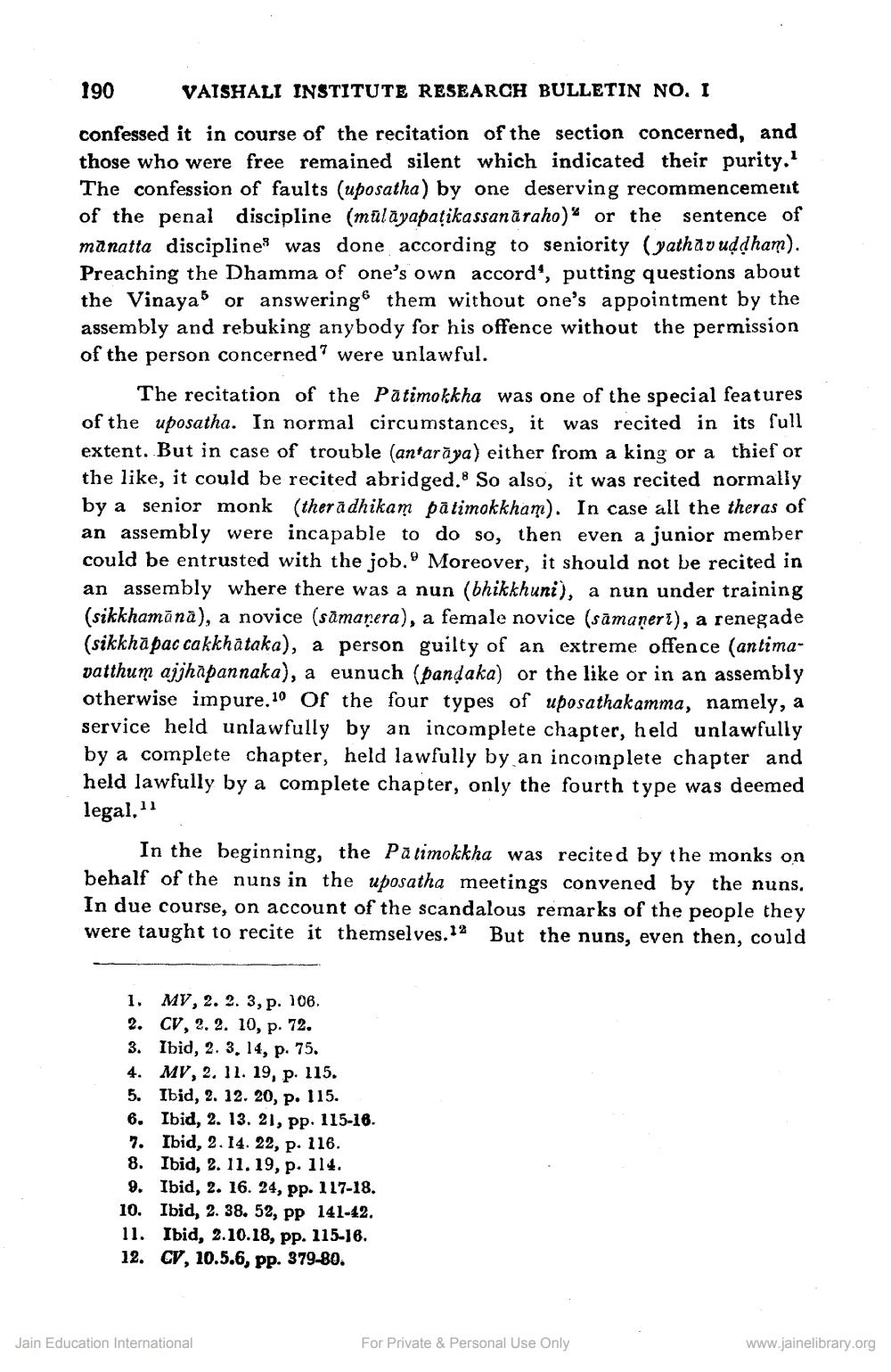________________
190
VAISHALI INSTITUTE RESEARCH BULLETIN NO. I
confessed it in course of the recitation of the section concerned, and those who were free remained silent which indicated their purity.' The confession of faults (uposatha) by one deserving recommencement of the penal discipline (mulayapaṭikassanāraho) or the sentence of manatta discipline was done according to seniority (yathavuḍḍham). Preaching the Dhamma of one's own accord, putting questions about the Vinaya or answering them without one's appointment by the assembly and rebuking anybody for his offence without the permission of the person concerned' were unlawful.
The recitation of the Patimokkha was one of the special features of the uposatha. In normal circumstances, it was recited in its full extent. But in case of trouble (antaraya) either from a king or a thief or the like, it could be recited abridged. So also, it was recited normally by a senior monk (ther adhikam patimokkham). In case all the theras of an assembly were incapable to do so, then even a junior member could be entrusted with the job. Moreover, it should not be recited in an assembly where there was a nun (bhikkhuni), a nun under training (sikkhamānā), a novice (samarera), a female novice (samaṇert), a renegade (sikkhāpac cakkhātaka), a person guilty of an extreme offence (antimavatthum ajjhapannaka), a eunuch (panḍaka) or the like or in an assembly otherwise impure. 10 Of the four types of uposathakamma, namely, a service held unlawfully by an incomplete chapter, held unlawfully by a complete chapter, held lawfully by an incomplete chapter and held lawfully by a complete chapter, only the fourth type was deemed legal,11
In the beginning, the Patimokkha was recited by the monks on behalf of the nuns in the uposatha meetings convened by the nuns. In due course, on account of the scandalous remarks of the people they were taught to recite it themselves.12 But the nuns, even then, could
1. MV, 2. 2. 3, p. 106. 2. CV, 2. 2. 10, p. 72. 3. Ibid, 2. 3. 14, p. 75.
4. MV, 2. 11. 19, p. 115.
5. Ibid, 2. 12. 20, p. 115.
6. Ibid, 2. 13. 21, pp. 115-16.
7. Ibid, 2. 14. 22, p. 116.
8. Ibid, 2. 11. 19, p. 114. 9. Ibid, 2. 16. 24, pp. 117-18. 10. Ibid, 2. 38. 52, pp 141-42. 11. Ibid, 2.10.18, pp. 115-16. 12. CV, 10.5.6, pp. 379-80.
Jain Education International
For Private & Personal Use Only
www.jainelibrary.org




